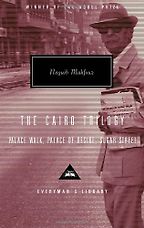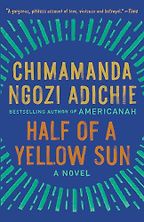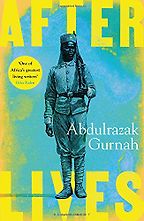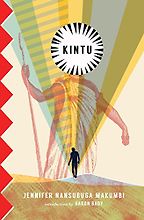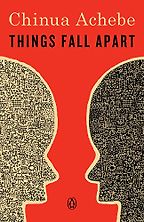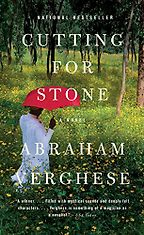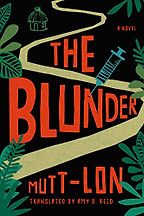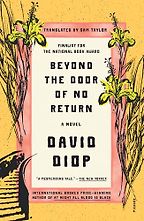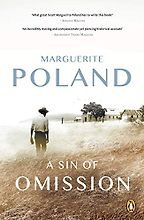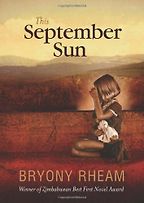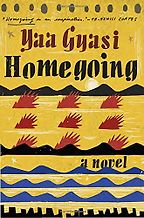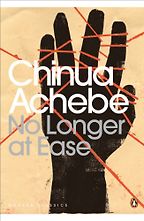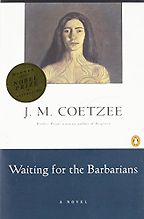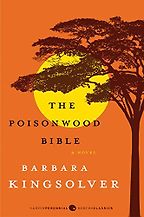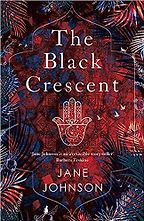Historical Fiction set in Africa
Last updated: January 07, 2025
Africa has a rich and sprawling literature—historical fiction included. Chinua Achebe's writing forms an important pillar in the the African canon and features frequently here; other firm Five Books favourites include Nobel laureate Abdulrazak Gurnah, whose 2022 novel Afterlives is set in what is now Tanzania during the era of German colonial rule, and Chimamanda Ngozi Adichie, whose Women's Prize-winning novel Half of a Yellow Sun is set during Nigeria's Biafran War.
You may also be interested in reading the interview with Zimbabwean novelist Tendai Huchu, who recommended his personal historical fiction highlights. As a genre, he notes, African historical fiction can play an important role in emphasising pre-colonial history: "Africans were supposed to have been timeless: they never developed, they never advanced, they never had any ideas until the Europeans came along. And then they started imposing. History really starts when the Europeans conquer Africa." But, as many of these enchanting books make clear, this insidious narrative was never true.
“I think first of all that it is a great literary treat. I believe it is a really captivating novel…In my view, what Mahfouz has done brilliantly is to dissect the rich life of the middle class of that multifaceted city and presented it to his readers; he made the readers experience what it feels like to be a middle-class family in the first half of the 20th century in Cairo. This was a very interesting time because Cairo was slowly shedding its conservative Islamic heritage and more or less embracing Westernism. Through tracing the three generations of the family at the centre of the novel you see the change.” Read more...
The best books on The Arab World
Tarek Osman, Foreign Correspondent
Half of a Yellow Sun
by Chimamanda Ngozi Adichie
***Winner of the 2007 Women’s Prize for Fiction***
The most celebrated of a new generation of Nigerian novelists bravely and brilliantly tackles an event that still seems to whisper in the heart of the country’s affairs perhaps more than any other: the devastating civil war of 1967-70.
“Half of a Yellow Sun centres around a family as they transition from a position of influence and privilege to being just regular citizens of the newly formed Republic of Biafra. I don’t know how much I need to tell you, but, basically, about six years after Nigerian independence there was a civil war known as the Biafran War. It’s a beautifully written, big swing of a novel with lots of themes: moral responsibility, ethnic allegiances, class, race. And it’s all set against the backdrop of this pivotal time in Nigerian history.” Read more...
Chioma Okereke, Novelist
“Abdulrazak Gurnah—who won the 2021 Nobel Prize for his ‘uncompromising and compassionate penetration of the effects of colonialism.’ His latest novel, Afterlives, is set in what is now Tanzania (then Tanganyika) during the period of German rule around the turn of the 20th century, following a large cast of characters facing oppression of various kinds during the run-up to the First World War.” Read more...
The Notable Novels of Summer 2022
Cal Flyn, Five Books Editor
“Is this not a fun read?…Just the ambition of it, and the sweep of it, and the depiction of these ancient African kingdoms that you don’t really get anywhere else in popular culture.” Read more...
Tendai Huchu, Novelist
“Absolutely compulsory reading for anybody who wants to understand the impact that the Europeans had on Africa—particularly those of the missionaries. The colonial officers were accompanied by missionaries intent on ‘civilising’ Africa. Chinua Achebe really captures in this masterpiece the tensions of that period. If anybody were to read only one book about Africa, I’d put Things Fall Apart right at the top of my list.” Read more...
Books About African History by African Writers
Zeinab Badawi, Broadcaster
“This novel from a decade ago should be read by every American interested in immigration. While it deals with a lot of medical details, the essence of it is about urban life in developing countries and about the immigrant experience. It is both moving and thought-provoking.” Read more...
The Best Economics Books to Take on Holiday
Daniel Hamermesh, Economist
The Blunder
by Mutt-Lon
The Blunder by Mutt-Lon, the pen name of Nsegbe Daniel Alain, is a historical novel set in early 20th century Cameroon, when the country was split between French and English colonial administrations. It's based on the true story of Dr. Eugène Jamot, a French military doctor whose head still graces a monument outside the Ministry of Public Health in Yaoundé, the capital, but whose legacy is decidedly mixed. The book is a revealing, refreshing and entertaining read, written in French and translated into English by Amy Reid.
Beyond the Door of No Return
by David Diop
Beyond the Door of No Return by David Diop is a historical novel that opens in France, but is set mainly in 18th-century Senegal, at the height of the slave trade. It's the story of a French botanist, Michel Adanson, and what befell him after going to the island of Saint-Louis in Senegal. As he writes to his daughter, "Things did not go the way I planned. I made the voyage to Senegal to discover plants, and instead I encountered people."
Diop won the International Booker Prize in 2021 for his work of historical fiction set in World War I, At Night All Blood Is Black.
“In the hands of a careless writer, A Sin of Omission might have been an impossible read, but Marguerite Poland’s restraint, whilst not sparing us, beckons us on. We trust her, and when you trust an author, you enjoy being absorbed into the world being offered, whatever the delights or otherwise of that world itself.” Read more...
The Best Historical Fiction: The 2020 Walter Scott Prize Shortlist
Katharine Grant, Historical Novelist
“I particularly like this book because of how it moves over a very long time span. We have two wars—World War II and then the Zimbabwean war for independence—somewhere in there. It shows really well how history isn’t just a static force. You can’t just say that stuff happened and then it’s over and it’s gone. The effects of these things that happened long ago still reverberate today. And I think, for me, that is why I had to choose this novel.” Read more...
Tendai Huchu, Novelist
“I read No Longer at Ease when I was going to school in Pakistan. It was the first novel by an African writer that I had ever read. In some sense it felt familiar. The main character leaves Nigeria, goes to study in Britain and is, as the title suggests, no longer at ease. It’s a novel that stayed with me, in part because it broadened my sense of who could write literature and what literature was supposed to be about. No Longer at Ease explores not just moving to a country but leaving a country and returning. The dynamic of somebody who moves in two directions—abroad and back again, was of real interest to me, as someone who had done that myself. I’ve bounced to and from Pakistan and America, and other places as well. The sense that we’re changed by migration—that home is no longer the same because we are no longer the same—was very powerful in that book and that’s part of why it sticks with me.” Read more...
The Best Transnational Literature
Mohsin Hamid, Novelist
“Waiting for the Barbarians was the Coetzee book that I was always most attached to – I think it’s the Coetzee book that most South Africans are attached to. Coetzee takes the mood of the 1980s state of emergency – when people were being detained and disappearing and there was a fear of communist or black madness on the borders – and he makes it more interesting by creating this partial allegory of some unnamed empire…It’s about a magistrate. He works for the empire, you don’t know what the empire is and you don’t know what century it’s taking place in. The magistrate is trying to administer law and order, he’s trying to be a figure of some kind of justice. And all the time there’s fear that the barbarians are about to invade and take down the empire. All sorts of draconian measures and violations of decency are carried out in the name of emergency. Needless to say, it ends unhappily.” Read more...
The Best South African Fiction
Imraan Coovadia, Novelist
“The Poisonwood Bible blew me away when I read it. Barbara Kingsolver is a magnificent writer. I’ve heard people say she’s a woman’s writer, as if it’s some lesser place in the world of writing. These are huge books that go right to the heart of the human condition. I’m so happy to see her get her Pulitzer…This is about a family of Southern Baptists. The father, Nathan, is an egomaniac who is determined to go on this mission, whether it’s wanted or not. He drags his family with him into the heart of the Congo, with this white savior delusion that he is going to save the souls of all these poor, ignorant black people who know nothing and can’t exist in the world. He’s a nightmare. I’ve seen men like this. All the point-of-view characters are female. It’s brilliant.” Read more...
Historical Fiction Set Around the World
Jane Johnson, Historical Novelist
The Black Crescent
by Jane Johnson
The Black Crescent by British novelist Jane Johnson is a lovely work of historical fiction that introduces you to the world of 1950s Morocco, at the time of the country's struggle for independence from France. The main character, Hamou Badi, is from a mountain village but ends up becoming a policeman and working in Casablanca. The author, Jane Johnson, has set a number of her novels in Morocco where she met her husband, Abdel Bakrim, and now lives for half the year (see below for the story of how that happened!). As well as being a good story, the book is a nice way of learning about Morocco's recent history alongside her.
